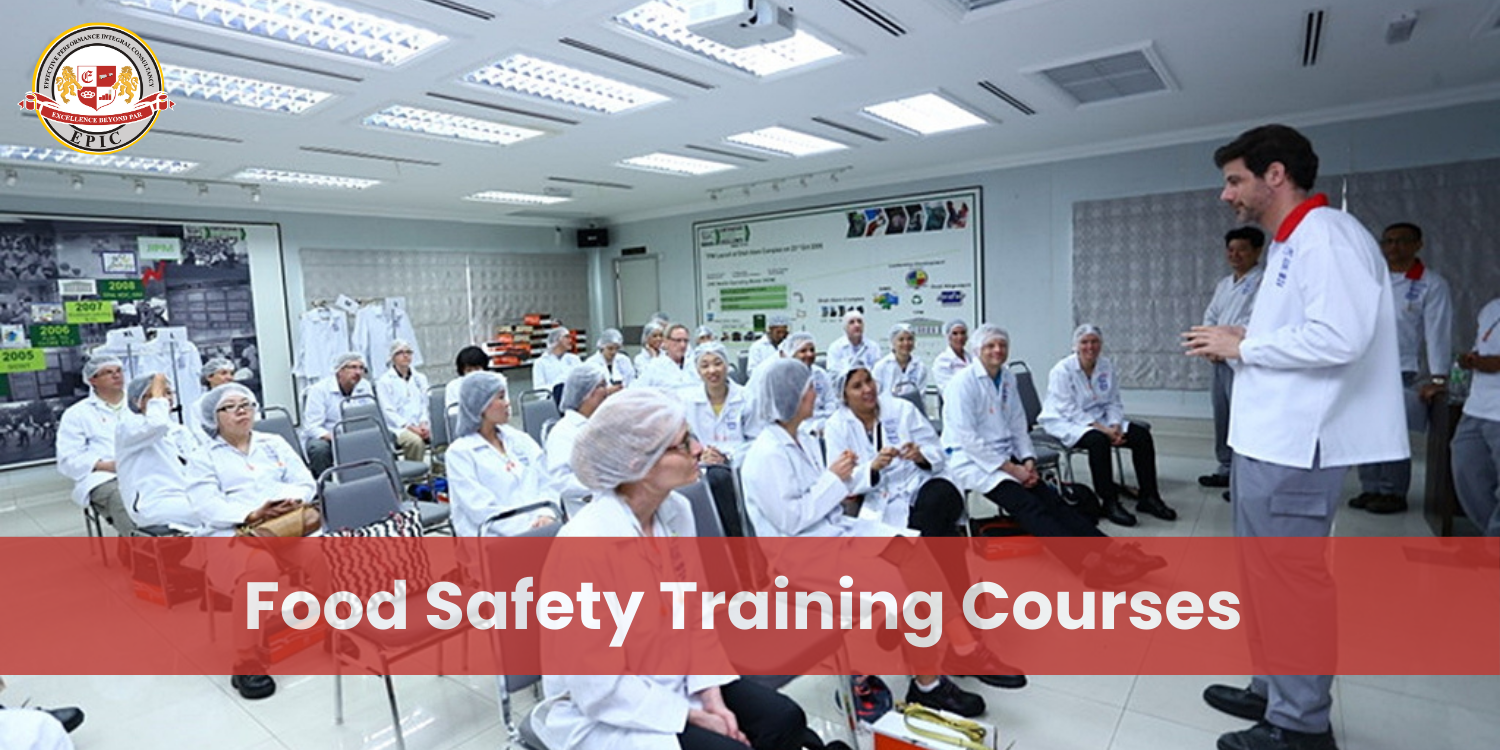
In today’s fast-paced world, food safety has never been more crucial. Whether you’re working in a restaurant, a food processing plant, or handling food at home, understanding the fundamentals of food safety is essential.
At EPIC, we offer a range of food safety courses designed to equip you with the knowledge and skills needed to ensure that the food you handle is safe for consumption.
Our food safety courses cater to different levels of expertise and are designed to meet the specific needs of individuals and businesses alike. From basic food hygiene principles to advanced food safety management systems, we’ve got you covered.
Food safety is about preventing food-borne illnesses and ensuring that the food we consume is safe and healthy. This involves a range of practices, from proper food handling and storage to understanding food-borne pathogens and how to prevent contamination. With food safety training, we can protect consumers and maintain high standards in the food industry.
EPIC’s Food Safety Course Offerings
EPIC provides a variety of food safety courses tailored to different audiences. Whether you’re a beginner or an experienced professional, our courses are designed to meet your needs.
Level 1 Award in Food Safety (RQF)
The Level 1 Award in Food Safety (RQF) is ideal for individuals new to the food industry or those who handle low-risk foods. This course provides a solid foundation in food safety principles, covering essential topics such as:
The importance of personal hygiene
Basic principles of food safety
Safe food handling practices
Understanding food-borne illnesses
Upon completion of this course, participants will have the basic knowledge required to handle food safely and prevent contamination, making it an excellent starting point for those looking to build a career in the food industry.

Level 2 Award in Food Safety (RQF)
For those seeking more in-depth knowledge, the Level 2 Award in Food Safety (RQF) delves deeper into food safety practices. This course is designed for individuals who work in food preparation or serve food directly to customers. Key topics include:
Understanding food safety hazards and their control
Effective cleaning and sanitization techniques
Temperature control and food storage guidelines
Legal requirements for food safety
By the end of this course, participants will be well-equipped to ensure food safety in their workplaces, reducing the risk of food-borne illnesses.
Level 3 Award in Supervising Food Safety (RQF)
The Level 3 Award in Supervising Food Safety (RQF) is aimed at supervisors, managers, and business owners responsible for overseeing food safety in their operations. This course covers advanced topics such as:
Implementing food safety management systems
Conducting food safety audits
Training staff on food safety best practices
Legal and ethical responsibilities in food safety
This comprehensive course ensures that those in supervisory roles are capable of maintaining high food safety standards within their teams and operations.
The Benefits of Food Safety Training
Investing in food safety training brings numerous benefits, both for individuals and organizations. Some of the key advantages include:
Compliance with regulations: Food safety courses help businesses comply with local and international food safety standards and regulations, avoiding costly fines and legal issues.
Enhanced reputation: A strong commitment to food safety enhances your organization’s reputation, building trust with customers and clients.
Reduced risk of food-borne illness: Proper training helps prevent food-borne illnesses, protecting both consumers and your business.
Increased employee confidence: Training empowers employees with the knowledge and skills to handle food safely, boosting their confidence in their roles.

At EPIC, we pride ourselves on delivering high-quality food safety courses that are both practical and informative. Our courses are designed by industry experts and are regularly updated to reflect the latest developments in food safety standards and practices.
We use a variety of training methods, including interactive sessions, real-life case studies, and hands-on practice to ensure our participants gain a thorough understanding of food safety.
Q: Who should take a food safety course?
A: Food safety courses are essential for anyone involved in food handling, preparation, or service. This includes chefs, kitchen staff, food processors, and anyone working in the food industry.
Q: What is the difference between Level 1, 2, and 3 food safety courses?
A: Level 1 is a basic course for those new to food safety, covering fundamental principles. Level 2 is more advanced, suitable for those directly involved in food preparation. Level 3 is designed for supervisors and managers responsible for overseeing food safety practices.
Q: How long does it take to complete a food safety course?
A: The duration varies depending on the course level. Level 1 can typically be completed in a day, while Levels 2 and 3 may require several days of training.
Q: Is certification provided upon completion of the course?
A: Yes, participants receive a certification that is recognized within the food industry, which can be a valuable addition to your professional credentials.
At EPIC, we are committed to providing top-notch food safety training that meets the needs of our clients. Our courses are not only informative but also engaging, ensuring that you and your team are fully equipped to maintain high standards of food safety.
Whether you’re looking to improve your own knowledge or enhance your team’s skills, our food safety courses offer the perfect solution.
Invest in food safety training with EPIC and ensure that your business upholds the highest standards of food safety, protecting both your customers and your reputation. Visit our website or contact us today to learn more about our course offerings and how we can help you achieve food safety excellence.